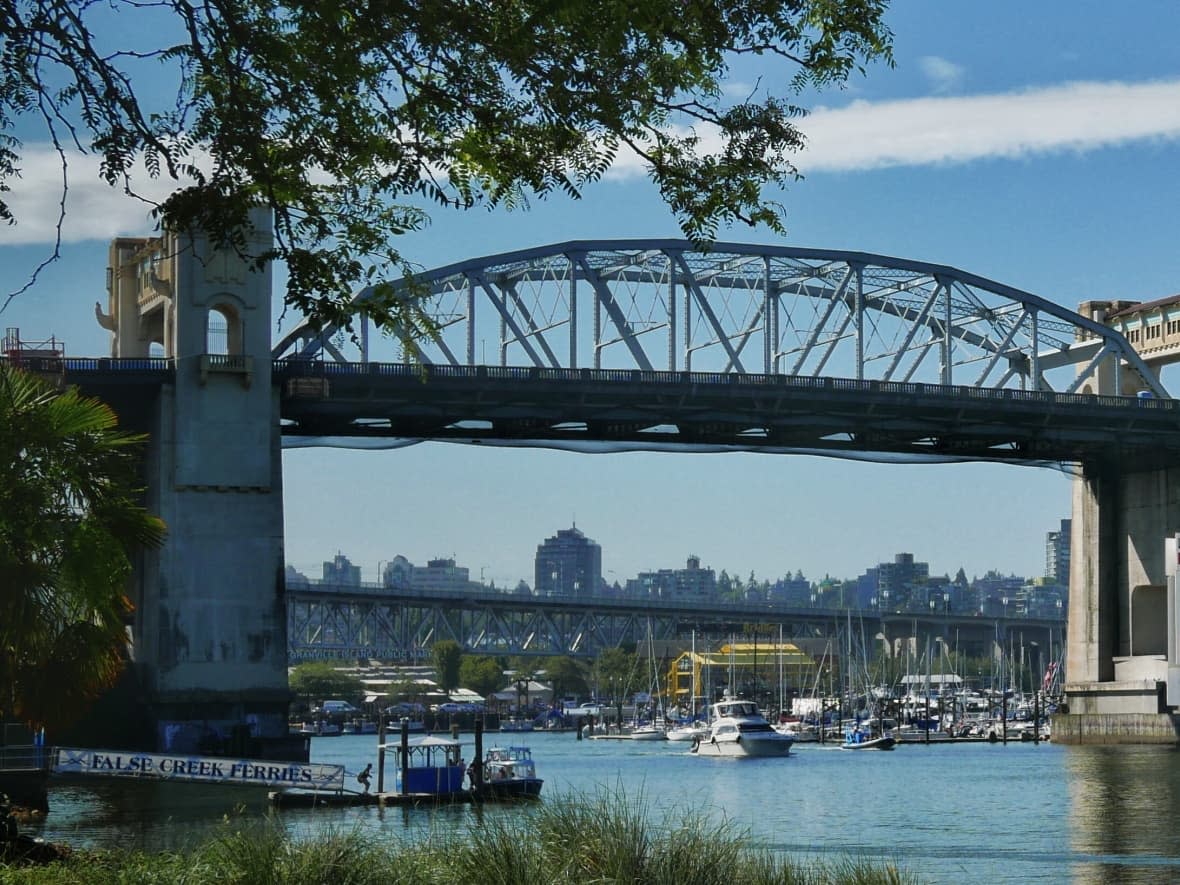Major B.C. First Nation housing development one step closer to reality

A major housing project on unceded Squamish territory took another step forward Wednesday as the City of Vancouver agreed to allow developers access to critical infrastructure, such as sewage and transportation.
The Squamish First Nation's Sen̓áḵw housing development will be built on 11 acres of land at the foot of the Burrard Street Bridge in Vancouver's Kitsilano neighbourhood, and will be home to 6,000 residential units.
Squamish spokesperson Sxwíxwtn (Wilson Williams) says the project will generate billions of dollars for the First Nation.
"Today is such a big celebration," he told On the Coast host Gloria Macarenko. "It's a historic event for our people.
"We're now going to be visible again on our own lands again in Vancouver and one of our village sites."
The agreement means the city will allow developers access to infrastructure, allowing them to connect utilities — such as water, heat and electricity — to residential towers.
The city also promises upgrades to pedestrian walkways, cycling, transit and roads in the area to support up to 10,000 new residents once the project is complete.
"We have our arms open to welcome and strengthen our community. We want to be good neighbours," Sxwíxwtn said.
Leaders from the Squamish Nation and from the city described the agreement as an act of reconciliation, something Vancouver mayor Kennedy Stewart says he strives to achieve in his role.
"Vancouver now strives to become a true city of reconciliation, and today is another step in that direction," he said during a press conference Wednesday.
In 2003, the Federal Court of Canada returned control of a portion of the original 80-acre reserve land in that area to the Squamish Nation, so the project does not need city approval to move ahead. However, it does need the city to agree to connect the buildings to infrastructure to make them livable.
The Squamish Nation has the power to collect taxes on the land. The nation has said some units will be strata-owned, and property taxes will be comparable to the City of Vancouver's.
Some of the units have been designated as affordable housing units specifically for Squamish Nation members.
"When this project comes to construction and is built and people are moving in, we're going to have Squamish people living in Sen̓áḵw again," said councilor Khelsilem, referring to how the Squamish people were forcibly removed from their land more than 100 years ago.
Construction is set to start this summer and expected to be complete in 2027.


